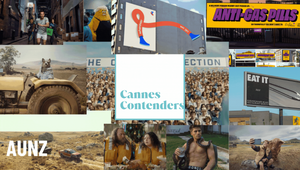
Inside The Science of Advertising in 2023

In the aftermath of the Covid 19 pandemic, many of the economic world’s dominant players have become more dominant. But Chris Howatson, founder and CEO of Howatson+Company, would like you to spare a thought for advertisers, who have been especially maligned by the unprecedented situation.
“If you’re up on your marketing science you’ll know big brands are more likely to grow than smaller brands,” Chris said to LBB.
“It’s called the Double Jeopardy Law. The cognitive bias of salience. The more we see something the more striking we find it, even if it isn’t remarkably different to lesser known alternatives.
“Try to name three brands of toothpaste. Colgate is the dominant player and keeps becoming more dominant thanks to many clever strategies, but the most fundamental is salience.”
Salience, the quality of being particularly noticeable or prominent, is central to advertising, and Chris has made it central to the philosophy at Howatson+Company. In fact, according to Chris, the basics of behavioural science could be more important than ever in the constantly-disruptive economic landscape of 2023.
“If you don’t have a card deck of cognitive biases and how they apply to marketing – Google it,” Chris says.
“When it comes to behavioural science, it’s important to understand both the context of the moment, and the context of human history in determining strategy. Rapid changes in public behaviour are likely to be in the context of an event, rather than an enduring change.”
“I remember an article Mark Ritson wrote during the lockdowns,” Chris says. “At the time, my LinkedIn feed was awash with predictions of a ‘new normal’ – a virtual global workforce bringing together the best talent, the end of CBDs, permanent changes in media consumption, teachers, nurses and other front line workers receiving a well deserved pay rise. None of these things happened. And so Ritson’s point was that humans are a predictable bunch and after this short, albeit very disruptive moment in time, everything will return to normal.”
If that’s too academic for you, consider this: Chris’ favourite campaigns apply cognitive biases to elicit rapid behaviour change.
“Remember Dumb Ways to Die?” Chris asks.
“A key part of that campaign was to ‘pledge’ to not cross the tracks in dangerous places. If people commit to doing something (assuming this is a commitment aligned to their values), and if not doing it would reflect poorly in the eyes of their peers, they are more likely to do it.”
For Chris, the reason we sign up to eight-week fitness challenges or grow moustaches in November all comes down to this principle. The more public a commitment to a behaviour, the more likely we are to stick at it.
This kind of research is how the decision making process is guided at Howatson+Watson, but Chris stresses that this should not alone be how any final decision is made. But the tool shouldn’t be left in the box.
“Behavioural science can be deployed on annual strategies or daily tactics,” Chris says.
“It’s something advertisers do every day. Google Search is a $150 billion annual business dedicated to targeting people on the basis of behaviour.”
Ultimately, Chris implores marketers looking to cut through to dig into the detail in order to find success.
“My advice to marketers would be to train the entire agency [in behavioural science] and charge everyone with seeking small incremental improvements in everything you do.”















